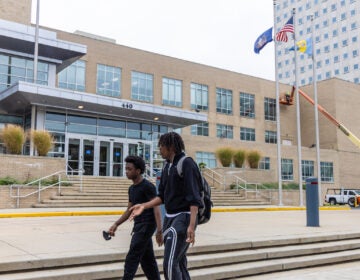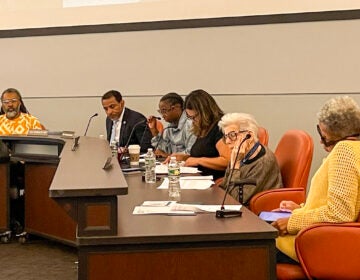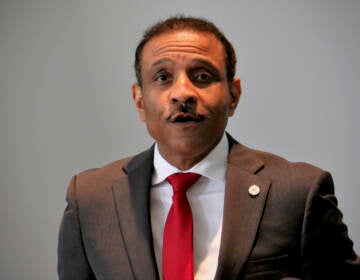Philly schools avoid budget cuts despite COVID-19 economic pain
Philly once thought its public schools would face an immediate budget hole. But relief from Harrisburg has staved off the worse for now.
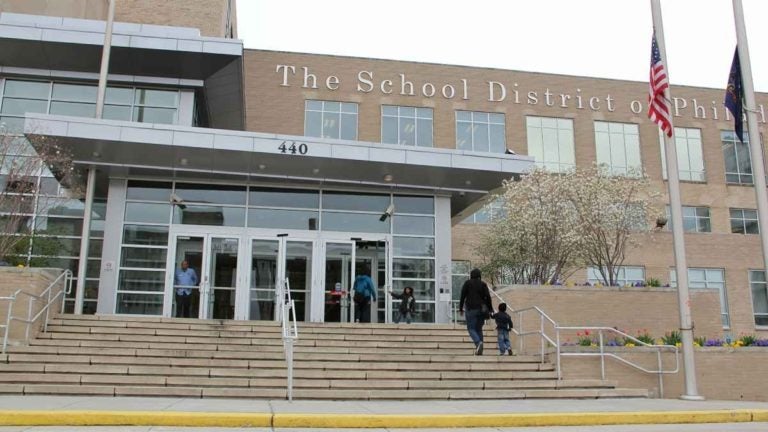
School District of Philadelphia. (Emma Lee/WHYY)
Philadelphia’s Board of Education unanimously passed a $3.5 billion budget for the 2020-21 school year without making any drastic budget cuts.
That counts as a small victory for the School District of Philadelphia, which just a month ago thought it would have a budget hole of nearly $40 million dollars for the upcoming fiscal year.
The state legislature’s decision to hold education funding even for the next 12 months — even as other states move to slash spending — proved crucial. With the state’s Independent Fiscal Office forecasting a substantial blow to tax revenue, the school district braced for an estimated $80 million drop in funding from Harrisburg.
That hit never came.
State lawmakers passed a budget that provides school districts with the same amount of money in 2020-21 as they received this school year. Leaders from both parties said it was crucial to provide stability for schools as they grapple with a return to classrooms in the fall.
That move prompted Philadelphia Mayor Jim Kenney to withdraw a proposal that would have raised city property taxes in order to plug the school district’s impending budget hole.
The change in state aid also substantially improved the school district’s long-term fiscal outlook — even if that outlook remains troubling.
By the 2024-2025 school year, the district believes it will have a $704 million deficit without any additional revenue. A month ago, that five-year deficit was around $1 billion.
The district’s forecasts assume, by default, that the state’s contribution to Philadelphia’s public schools will grow at a fixed pace over the next five years. It’s unclear, however, if those assumptions will prove accurate given the daunting financial recovery likely facing the state economy.

Get daily updates from WHYY News!
There are also potential cost increases looming on the school district’s horizon.
This summer, labor contracts for the district’s two largest unions will expire. The district may also have to spend significantly on whatever supplies it needs to safely reopen classrooms — as well as unanticipated costs related to potential school infrastructure emergencies concerning lead or asbestos exposure.
Even without any major new expenses, the school district expects to have a $145 million budget hole by next school year. Escalating charter school and pension costs have created a structural imbalance for the school district, with expenses rising faster than revenue.
Uri Monson, the school district’s chief financial officer, said the state’s decision to flat-fund education for the upcoming school year has bought the district time, but not cured its long-term financial woes.
“We’re not making desperate decisions under a really short timeline,” said Monson. “But there’s still a lot of work to be done.”
The school board also formally welcomed its newest member, Ameen Akbar, and the board re-elected Joyce Wilkerson as its board president by a unanimous vote. Wilkerson has led the board for the entirety of its existence and was the chair of the the School Reform Commission, until it dissolved in 2018.
Leticia Egea-Hinton was elected as the board’s Vice President. She replaces Wayne Walker, who recently left the board.
Correction: The original version of this story inaccurately said the school district had a five-year deficit projection of $508 million. The correct number is $704 million.
WHYY is your source for fact-based, in-depth journalism and information. As a nonprofit organization, we rely on financial support from readers like you. Please give today.



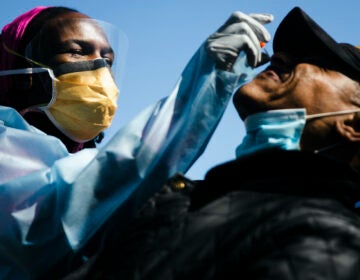
![CoronavirusPandemic_1024x512[1]](https://whyy.org/wp-content/uploads/2020/03/CoronavirusPandemic_1024x5121-300x150.jpg)
